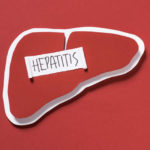Progress in Stopping HCV Replication
Achillion Presents Positive Data on Novel Mechanism for Treating HCV at EASL Annual Meeting
PR Newswire Europe (inc. UK Disclose)
NEW HAVEN, Conn., April 16 /PRNewswire-FirstCall/ — Achillion Pharmaceuticals, Inc. today announced the presentation of data validating the clinical antiviral activity of one of Achillion’s NS4A antagonists, ACH-806, for the treatment of hepatitis C virus (HCV) infection at the 42nd Annual Meeting of the European Association for the Study of the Liver (EASL). In three separate presentations, Achillion researchers discussed the potent antiviral activity in HCV-infected subjects, synergy with other classes of HCV inhibitors, and the unique mode of action of a NS4A antagonist. Achillion has shown that blocking NS4A, a viral protein that binds to a portion of HCV protease, inhibits HCV replication. This program is part of a collaboration and exclusive license agreement with Gilead Sciences for the research, development and commercialization of compounds for the treatment of chronic HCV.
In a late-breaker session on April 14th at 5:00 PM, John Pottage, M.D., Senior Vice President and Chief Medical Officer at Achillion, discussed clinical data in a presentation titled, “Short-term Antiviral Activity and Safety of ACH-806 (GS-9132), an NS4A Antagonist, in HCV Genotype 1 Infected Individuals.” The randomized, double-blind, placebo-controlled dose-escalation trial measured the antiviral activity, safety and pharmacokinetics of 300 mg of ACH-806 or placebo, dosed orally twice daily as a monotherapy over 5 days. The mean change in HCV RNA (log10) at day 5 was a decrease of 0.91 from baseline for treated subjects versus an increase of 0.05 for control subjects. Elevations in serum creatinine (a marker of kidney function) were observed in ACH-806 treated subjects and were reversible after completion of dosing.
“This study provides the first demonstration of human antiviral activity of an NS4A antagonist for HCV,” said Dr. Pottage. “While we and our partner Gilead decided to discontinue development of ACH-806 based upon the increase in serum creatinine levels, we do not believe this effect was target-related. The antiviral activity of the compound validates NS4A as a novel therapeutic target and therefore supports our continued work with Gilead to identify and evaluate next-generation compounds with the same mechanism of action.”
A second presentation on April 12 at 6:30 PM, titled “In Vitro Evaluation of Combination Treatment of ACH-806 with Interferon, VX-950 and NM 107,” was led by Mingjun Huang, Ph.D., Senior Director of Virology at Achillion, who discussed in vitro evaluations of ACH-806 in combination with interferon, a protease inhibitor, and a polymerase inhibitor. The data revealed that the NS4A antagonist did not show in vitro cross-resistance with agents from these other HCV therapeutic classes, and that NS4A antagonism appears to have a synergistic antiviral effect in combination in vitro with the HCV protease inhibitor VX-950 and the polymerase inhibitor NM 107.
Finally, in a third presentation on April 12 titled “ACH-806: A Potent Inhibitor of HCV Replication with a Novel Mechanism of Action,” Dr. Huang described the novel mechanism of action of NS4A antagonists. Achillion’s studies demonstrated that these antagonists block the formation of functional viral replication complexes, thereby preventing HCV replication independent of protease or polymerase inhibition.
“The high mutation rate of HCV necessitates the combination use of drugs with complimentary mechanisms of action in order to suppress viral resistance. Therefore, the possibility that candidates with the unique NS4A antagonism mechanism may be complementary to protease and polymerase inhibitors will be an important benefit in treating HCV infection,” stated Pottage.







